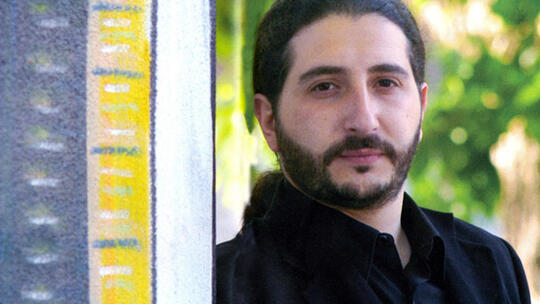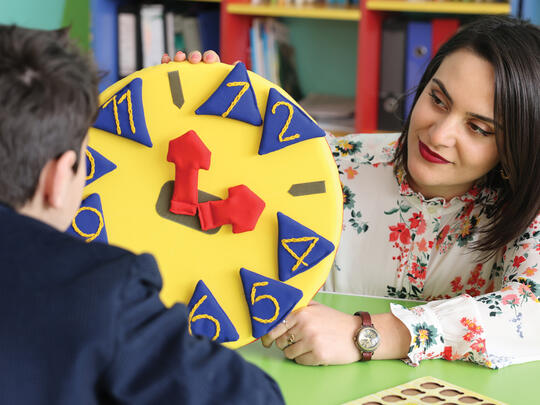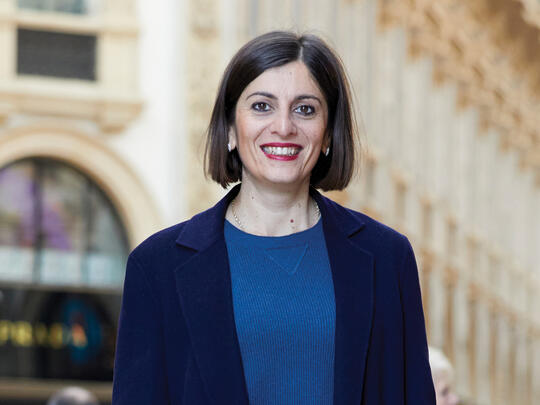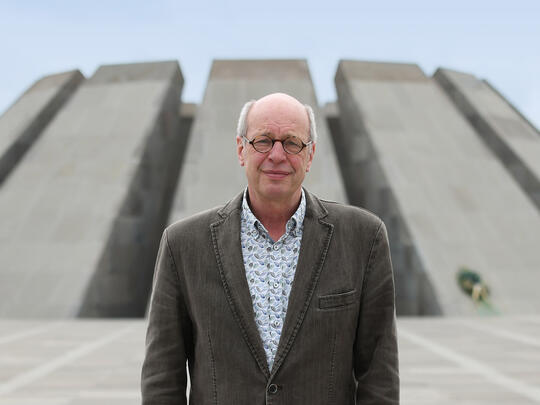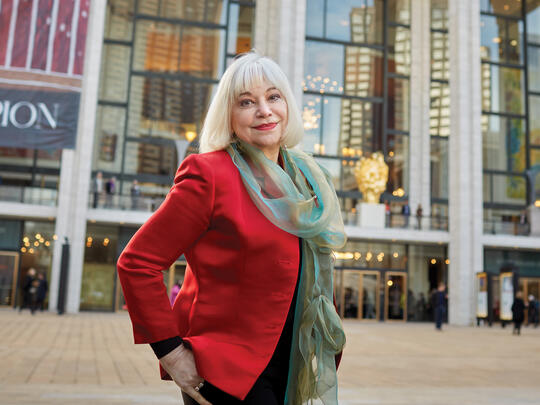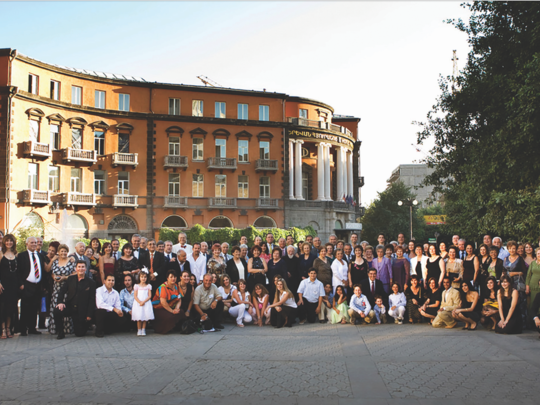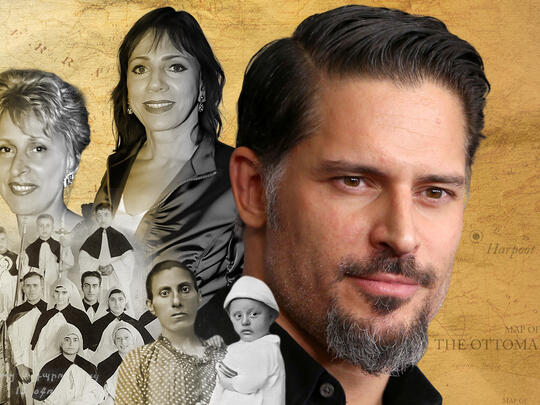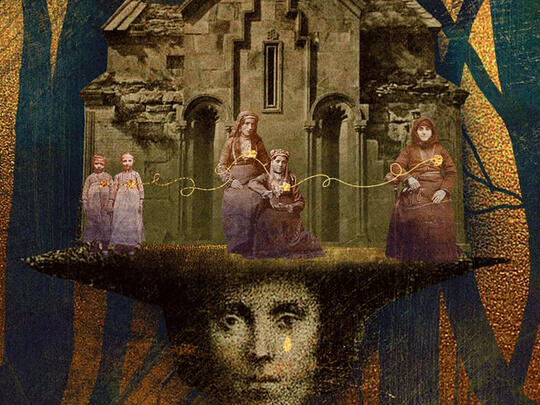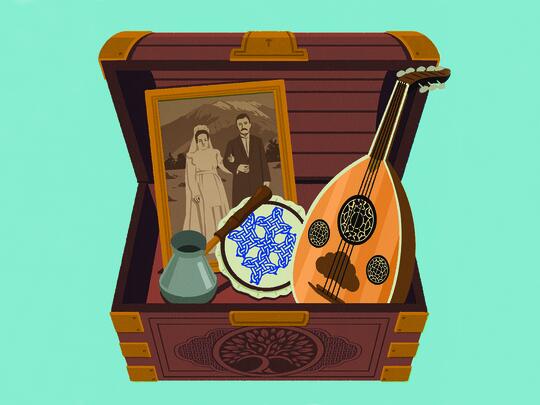
Conducting for Community
Maestro Alvaro Hagopian
AGBU gave me opportunities that not many people my age enjoy, which is especially true in our region.
Alvaro Hagopian is the conductor of the AGBU Montevideo Grung Choir and the Armenian Music teacher at the AGBU Nubarian-Manoogian School. Since 2006, he has been conducting the Montevideo Philharmonic Orchestra’s popular music repertoire. He began his musical studies at age five, studying piano at the Fálleri-Balzo Conservatory, and Orchestral Conducting under Maestro Federico at the Music School of the University of the Republic. Alvaro has conducted the Montevideo Symphony Band, Sweden’s “Musica Vitae” Chamber Orchestra and Paraguay’s Asunción Symphony Orchestra. In addition to conducting several reputable orchestras, he has also performed with the Buenos Aires Colón Theater Philharmonic Orchestra. He has been a pianist and music coordinator of Montevideo Philharmonic Orchestra’s “Galas de Tango” show, joining the orchestra as assistant conductor and pianist in its Egypt tour in 2002. As a member of different tango orchestras in Uruguay, Alvaro has performed alongside renowned musicians in the genre, including Daniel Binelli, Raúl Garello, María Graña, Raúl Jaurena, Rubén Juárez, Gustavo Nocetti, and Héctor Ulises Passarella. He has participated in several tango festivals in Argentina, Armenia, Austria, Brazil, Egypt, Finland, France, Norway, Peru, Sweden and the United States. Alvaro directed the musical arrangements of Montevideo Philharmonic Orchestra’s “Adagio to Zitarrosa,” conducting the orchestra jointly with Malena Muyala, Laura Canoura and the Larbanois-Carrero duo, and has been in charge of the musical direction, composition and sound sets, as well as art exhibitions. On the occasion of Aram Khachaturian’s centennial in 2003, he was the musical coordinator of a chamber music orchestra concert in Uruguay that paid tribute to the Armenian composer, including premieres of some of his works in the South American nation. He has focused his interest on the contributions of popular music to what is considered classical music. He won the Morosoli Prize in 2007, a major honor in the arts and culture field in Uruguay.
When did you decide to become a musician? What inspired your career choice?
I have always been surrounded by music at home. My father was a musician as well. I began to study piano when I was five, but there has always been a strong presence of music in my life, as my father had an Armenian music orchestra – the Mansour Hagopian Orchestra – and played different genres here in Uruguay. When I finished high school at AGBU, I simultaneously enrolled at law school and the National Conservatory. One day in 1993, a lecturer at law school asked how many of the students were studying more than one career, so some of us raised our hands. “That’s a symptom of insecurity,” he said. That was the last time I set foot in law school and decided to devote myself to orchestral conducting. That same year, I was asked to head AGBU’s Grung Choir in Montevideo, which I have been conducting for the last 20 years.
Is musical talent mostly the result of discipline and perseverance or is it mainly a natural gift?
It is both. I believe you need natural talent for any art, be it music or any other discipline, but then again, you can only attain results through hard work. There is more than one composer who says that composing is 20 percent inspiration and 80 percent perspiration. I think it always has to be a combination of both.
How would you advise young aspiring musicians?
That they love what they do, that they try to give their best, being convinced of what they do, and that they do it with true love and passion for their work and vocation. This is true in anything they do. It calls for a lot of work and devotion, making the effort of surpassing themselves every day.
Setbacks in a highly competitive environment are not uncommon. Are they blessings in disguise?
It is a competitive environment, but I don’t believe competition is what matters the most anyway. Even though competition helps us become better than others, something else needs to prevail and that is love and passion for music, as well as hard work, as I said before.
Atlanta Symphony Orchestra Conductor Robert Spano disagrees with the notion that music is universal. He says music has roots and has its own language, in the same way that literature does. Can you harmonize the South American and Armenian musical worlds in your identity as a musician?
There is music with nationality. Armenian music is not the same as Chinese or Russian music. There are nationalist groups, such as The Five [a group of Russian musical nationalists from the Romantic period: Mili Balakirev, Nikolai Borodin, Cesar Cui, Modest Mussorgsky and Alexander Rimsky-Korsakov]. You also had Sibelius in Finland. But beyond that localist identity, music is a universal language. It’s the same with verbal language: we do not all speak the same tongue, but we do speak a language. I first identify myself with Armenian music, obviously, but also with Uruguayan music, as I was born in Uruguay, due to historical vicissitudes we all know about. One never stops being Armenian, but I also feel part of the place where I was born.
What has been the role AGBU has played in your personal and professional development?
AGBU has played a major role in my life, as I received all my early education at AGBU from kindergarten to high school, which I finished at the Nubarian-Manoogian School. When I was 17, AGBU gave me the opportunity to serve the institution in my field, conducting its Grung Choir and teaching Armenian music for the last 20 years, for which I am very grateful. I owe AGBU the opportunity to head a choir with a long tradition in the local scene, where the choir has existed continuously since the 1940s, conducted by renowned maestros who have earned great recognition. AGBU gave me opportunities that not many people my age enjoy, which is especially true in our region.
Please note that archived content may appear distorted as it has been stripped of formatting and original images.

